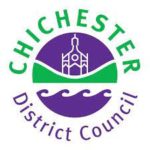Dunford House appeal is rejected by Inspector
December 20, 2021
John Saunders, Development Manager at Chichester District Council, gives an update on appeals against the refusal of planning permission and listed building consent for the change of use and alteration of the former YMCA Conference Centre, at Dunford House, West Lavington, to a single dwelling.
 Dunford House was built around 1852 for Sir Richard Cobden who was involved in several national political campaigns, organisations and associations, most notably working against the Corn Laws and for international peace, which included an important trade mission to France. Dunford House was constructed from public subscription as a mark of the esteem Cobden was held in at the time.
Dunford House was built around 1852 for Sir Richard Cobden who was involved in several national political campaigns, organisations and associations, most notably working against the Corn Laws and for international peace, which included an important trade mission to France. Dunford House was constructed from public subscription as a mark of the esteem Cobden was held in at the time.
It was also occupied by his children Ellen, Anne and Jane who became notable figures in the suffragist and suffragette movement. The key issues with the appeal were the impact of the proposal on the historical significance of Dunford House and the loss of the building as a community facility and its use by the public for training and educational purposes resulting from the Cobden legacy.
Dunford House has not been a dwelling for a long time and since around 1920 the building has been used for educational purposes to advance the ideals of Cobden. To this end, it has hosted a series of international conferences and lectures relating to Cobden’s political interests. The endurance and historic significance of this use, which has included tenures by the London School of Economics and the YMCA, provides the building with historic, associative, and communal value as a record and narrative linked to the Cobden legacy. The Planning Inspector deciding the case agreed with the view put forward that Dunford House was of historic and associative value and significance as an artefact linked to the lives of Sir Richard Cobden and his family.
The YMCA was given the building because it was a charity that offered public education and training. The Inspector considered that, public education and training had continued during the YMCA’s tenure and that the continuity of public access for training and education resulting from the Cobden legacy is an historic attribute of the building that adds to its historic significance.
The appeal decisions have now been received and while the Planning Inspector considered the alterations to the building to be acceptable, the change of use of the building to a single dwelling and, as a result, the loss of the use of the site as a community facility was not. The appeal against the refusal of planning permission for the change of use of the building was dismissed.
